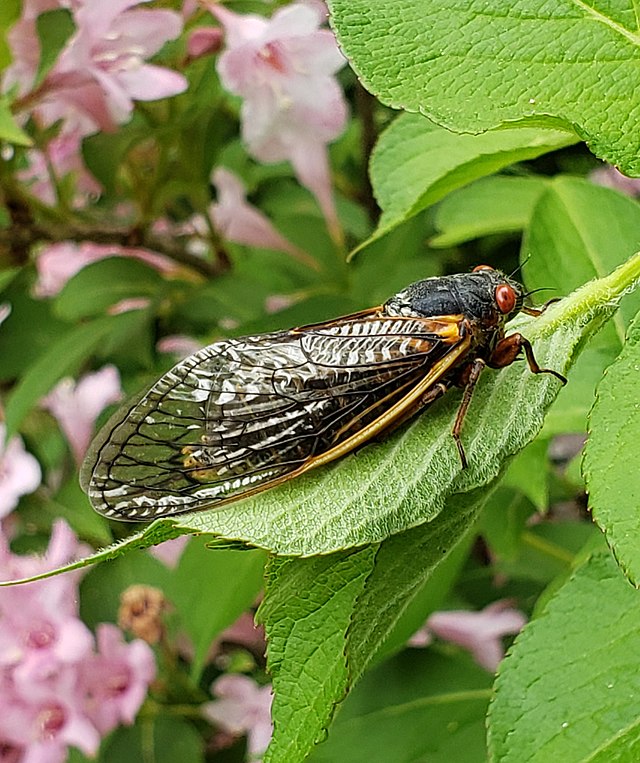Cicadas have been a big deal in my Baltimore, MD neighborhood. Ever since Brood X emerged in mid-May, they have dominated conversation in Facebook groups, in the checkout line at the grocery store, and between neighbors stopping on the (cicada-strewn) sidewalk to chat.

Maryland is near the epicenter of the emergence in Washington, DC, and boy, are we aware of it. One neighbor had so many cicadas in her yard that they hung like leaves from the bushes lining her walk. Others couldn’t walk in their yards without a constant crunch, crunch underfoot. Conversations outside were difficult and the incessant cicada song could be heard indoors, even with all the windows closed. At its climax, the cicada song was like thousands of dentist drills going at once. You couldn’t escape it.
We spent weeks trying to convince our three-year-old that she could be scared and brave at the same time, that it was safe to go outside, that the cicadas were harmless (if just a little clumsy and annoying). We covered our young bushes and trees with netting so that the cicada’s insistent egg-laying wouldn’t kill off too many branches on plants that were too young to survive that kind of massive pruning.
For six weeks, we’ve had our eyes on the calendar. The experts promised us that the cicada’s above-ground life cycle would wrap up by July the 4th.
Our Cicada-Independence Day.
In the last week, as the sound has died down and we have been able to walk in our yard without stowaways catching a ride on our clothes or hair, I have realized how much tension I had been carrying for the last couple of months.

It wasn’t that the cicadas were dangerous or even extraordinarily disruptive. But having them around meant being constantly on guard. It meant having to think through and plan for what, before, had been simple or reflexive. It meant living with constant noise, constant fear (for my daughter), and constant inconvenience.
As we approach the Fourth of July weekend, I am aware that there are many families in my city who are still waiting for their own Independence Day. And just like the constant dentist-drill song of the cicadas has worn me down, many families are exhausted just from trying to live life under the extra “noise” of systemic racism, violence, or unjust economic policies.
Many of these encounters in and of themselves aren’t enough to wear someone down. But when they’re concentrated on a minority of people, they can accumulate to do real harm—just like the excessive pruning of young bushes and trees by the cicadas. It all adds up.
As the adult cicadas are dying off here in Baltimore and their young ones are burrowing into the ground for another 17 years, I find my home and yard are becoming livable again. But as I’m tempted to settle into my own peaceful space, God shakes me from my easy comfort and calls me to a new alertness—because none of us are free until all of us are free.
This is the kind of [Independence Day] I’m after: to break the chains of injustice, get rid of exploitation in the workplace, free the oppressed, cancel debts…. If you get rid of unfair practices, quit blaming victims, quit gossiping about other people’s sins, if you are generous with the hungry and start giving yourselves to the down-and-out, your lives will begin to glow in the darkness, your shadowed lives will be bathed in sunlight… You’ll be known as those who can fix anything, restore old ruins, rebuild and renovate, make the community livable again.
Isaiah 58:6-12, MSG, italics added
The opinions expressed in articles posted on Mosaic’s website are those of the author and may not reflect the official policy of Mosaic Conference. Mosaic is a large conference, crossing ethnicities, geographies, generations, theologies, and politics. Each person can only speak for themselves; no one can represent “the conference.” May God give us the grace to hear what the Spirit is speaking to us through people with whom we disagree and the humility and courage to love one another even when those disagreements can’t be bridged.
